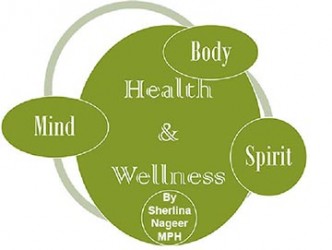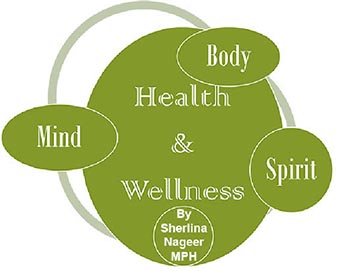There are some species in the natural world where individuals of either gender can reproduce. In humans however, it is women alone who are the child-bearers. This is a critically important task, requiring a great deal of resources and care. However, for as long as women have been giving birth, women have also been terminating pregnancies.
The reasons for terminating a pregnancy are multiple and varied. Many pregnancies- up to 40% according to the Guttmacher Institute- are unplanned. Too often, women and girls are raped. Sometimes the condom breaks or other birth control method fails. Often, accurate information about birth control is lacking and women/girls don’t know where to get it, or don’t have enough money to buy and use it regularly. Sometimes health centres lack the type of contraception a woman prefers or knows to use. Too often, women are in abusive, unhealthy relationships where they cannot communicate and negotiate such things with their partner(s). Also, in societies with widespread poverty and inequity, many are engaged in a daily struggle for survival. Often women already have children to care for and simply cannot afford another. Sometimes being pregnant causes the mother’s health/life to be in danger. Other times there is something critically wrong with the foetus. And sometimes a woman is not ready or willing for the task of motherhood.
causes the mother’s health/life to be in danger. Other times there is something critically wrong with the foetus. And sometimes a woman is not ready or willing for the task of motherhood.
Some women, faced with an unplanned pregnancy, decide to continue with it anyway. Others choose to abort and delay childbearing. Not every woman should or must bear children. Every woman’s circumstances are unique and control over her body’s reproductive functions- such as deciding whether or when to become a mother, how many children to have, and when to stop having them- are fundamental rights of every woman and decisions that no one else but she should make.
Women and girls in Guyana would seem, on the surface, to be luckier than women in countries around the Caribbean and Latin/South America. That’s because abortion has been legal in Guyana since 1995, with termination of pregnancies up to 16 weeks being allowed, with the involvement of medical practitioners. Abortion remains a deeply taboo subject in Guyana however, as in many societies, with a great deal of discrimination being directed towards women and girls who have this procedure. Much of the condemnation comes from religious leaders who have adopted deeply discriminatory anti-woman beliefs and who have been able to convince many, especially those in positions of power, of the validity of such beliefs.
Such stigma and discrimination is so strong that, even in cases like Guyana where abortion has been legal for almost two decades, there are less than a dozen trained healthcare professionals in the entire country willing to provide this service, mostly in the private sector in Georgetown. None of the public hospitals offer the procedure and Guyanese women and girls who desire this service- especially those who are economically disadvantaged and cannot afford private care, and who live in rural and hinterland communities- continue to suffer and die needlessly because safe and affordable abortions remain inaccessible to them. In fact, many Guyanese do not even know that abortion is legal here!
Abortion- when performed by a trained healthcare provider- is safer than many other procedures. During the first few weeks of pregnancy, termination can be easily and quickly induced by taking certain pills (Note- it is best if these pills are taken after consulting with a doctor/healthcare professional). In a later stage, minor surgery is necessary. However, when done correctly by a trained healthcare provider, there are no lasting effects of abortion and most women/girls who have aborted have no problem conceiving or carrying another pregnancy to term at another time if they so desire.
However, when abortion is stigmatized and made inaccessible to the women/girls who most need it, and when only those with resources can afford proper care, then- even though there is a progressive law- we have women drinking ‘bush teas’ and pills from unlicensed sources, pushing bicycle spokes in their uteruses, or going to bottom-house clinics where they risk getting maimed or killed. Complications from unsafe abortion include rupture of internal organs, excessive blood loss, infection, and septic shock. Just a few years ago, in 2011, Karen Badal, an 18 year old married mother of two, died shortly after Christmas, after her bowels and uterus were severely damaged during a ‘bottom-house’ abortion. The reality is that, law notwithstanding, poor women and girls in Guyana who find themselves with an unwanted pregnancy are not much better off today than in decades past.
However while economically disadvantaged women/girls suffer the most from the inaccessibility of abortion, the fact is that all kinds of women seek abortions- single and married, rich and poor, young and older, well-educated and less schooled, religious and non-religious, those already with children and those with none. As such, safe and affordable abortions should concern every woman.
To really implement the Medical Termination of Pregnancy Act, the Ministry of Health must, first and foremost, ensure that abortions be affordable, done safely by trained providers, and be accessible in all regions of Guyana. In addition, untrained, unlicensed persons who maim and kill women/girls seeking services should be brought to justice at all times.
Access to safe and affordable abortion is only one plank in a broader reproductive justice platform however, and a true commitment to this would include the provision of comprehensive sex education in schools, family planning, and termination of pregnancy services (to victims of rape especially) as well as economic policies such as recognizing and compensating caregiving, reducing the VAT, and increasing wages.
Every child should be a wanted child. Raising healthy, socially conscious, and responsible children is a task that requires a great deal of attention and resources. This should be where we as a society concentrate our efforts- not on stigmatizing and judging women for the choices they make, or forcing them to do things against their will and well-being. Break the taboo against abortion now!









